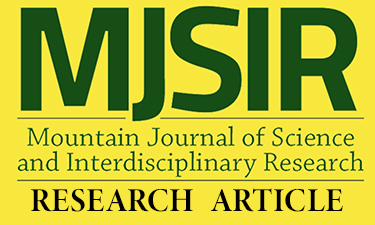Balancing Life: The Struggles of Working Mothers with Children 5 Years Old and Below in Benguet State University, Philippines
Main Article Content
Abstract
The study documented the struggles of working mothers in balancing their daily lives between family and career. Using snowball technique, the study purposively sampled 25 working mothers employed in Benguet State University. Results showed that financial and personal development drive the working mothers to engage in paid labor. Along with these are the challenges and struggles centered primarily on childcare. Their status as ‘absentee mothers’ cause qualms in terms of their emotional bond with their children and affect the behavioral development of the child. Hence, these mothers employ some mechanisms to fulfill their childcare duties to include spending quality time with their child or children and from time to time requesting child care from relatives, hired nanny, or child care center. With these situations, enhancing the existing policies and additional practical support including the possible establishment of child-minding center inside the university were seen to significantly assist the working mothers. Provision of emotional and practical support from the immediate family and workplace are also essential factors in attaining and maintaining work-life balance among these mothers.
Article Details
References
Batani, R.S., Banes, G.G., & Labon, K.O. (2015). Time Use Analysis: Women and their Households as Sites for Everyday Negotiations and Organizing Community Life. Benguet State University Research Journal, 73:31-46.
Ilac, E.D. (2012). Of mothers, work and family. Philippine Daily Inquirer. Philippines. Retrieved from http://business.inquirer.net/59145/of- mothers-work-and-family
Kugler, J. (2015). The mother of all engagement surveys: Key questions for working moms.. Retrieved from https://www.quantumworkplace. com/future-of-work/mother-engagement-sur veys-key-questios-working-moms/
Maiya, S., & Bagali, M.M. (2014). An Empirical Investigation on Work-Life Balance Among Working Mothers: Emerging HRM Interventions.
Moges, B., & Weber, K. (2014). Parental Influence on the Emotional Development of Children. In: Industrial Sociology: An African perspective. Samlad printers Ibadan, Nigeria. Posted on May 7, 2014 by Alexandera Murphy. Retrieved from https://my.vanderbilt.edu/developmental psychologyblog/2014/05/parental-influence-on- the-emotional-development-of-children/
Onyeonoru, I.P. Office for Standards in Education (OFSTED). (2010). Conducting early years inspections. Retrieved from http://dera.ioe.ac.uk/1114/1/Conducting %20early%20years%20inspections%20%28April %20revisions%29.pdf
Ortega, R.A.L., & Hechanova, M.R.M. (2010). Work-Family Conflict, Stress, and Satisfaction among Dual-Earning Couples. In: Philippine Journal of Psychology, 2010, 43 (1), 27-43. Retrieved from http://lynchlibrary.pssc.org.ph: 8081/bitstream/handle/0/1542/04_Work- Family%20Conflicts_Stress%20and%20 Satisfaction%20among%20Dual-Earning%20 Couples.pdf?sequence=1
Osteria, T.S. (2014). Gender, Labor, and Ageing: Selected Papers on Social Issues in Development (1994-2012). De La Salle University Publishing House.
Rendon, R.A. (1991). Work-Life Balance Among Working Married Women: What Social Workers Need to Know. California. Retrieved from http://scholarworks.lib.csusb.edu/cgi/view content.cgi?article=1449&context=etd
Tan-Zubiri, A. (2013). A Child’s first five years are the most important. Philippine Daily Inquirer. Retrieved from https://lifestyle.inquirer. net/121125/a-childs-first-five-years-are-the- most-important/.
Terol, N. (2016). Work- Life Balance for Women: Is it even possible?, Retrieved from http://www. rappler.com/life-and-style/career/125115-work- life-balance-women-jobs
Volling, B., McElwain, N., Notaro, P., & Herrera, C. (2002). Parents’ emotional availability and infant emotional competence: Predictors of parent- infant attachment and emerging self-regulation. Journal of Family Psychology, 16: 447-465.

